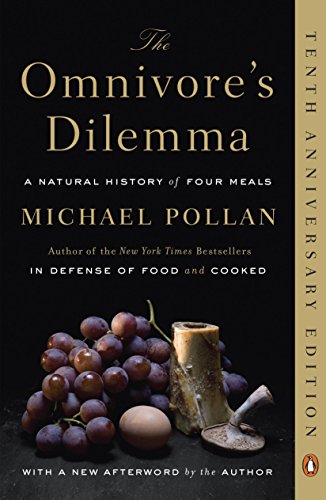

This article is an excerpt from the Shortform summary of "The Omnivore's Dilemma" by Michael Pollan. Shortform has the world's best summaries of books you should be reading.
Like this article? Sign up for a free trial here .
Are humans omnivores, carnivores, or herbivores? Do we eat everything naturally, and are humans omnivores by nature? See what science says about the question.
The answer is simple:
Humans evolved as omnivores. This is reflected in the design of our teeth (we can eat both plants and meat), our brain capacity for observation and memory, and adaptations such as hunting and cooking.
Being an omnivore as a human is an advantage that has enabled humans to survive in many different environments. But it presents a challenge. Because we can eat almost anything, we must continually make choices.
Because humans are omnivores, in the early days of human evolution, eating the wrong thing might kill you or make you sick, so the decision was crucial and fraught with anxiety. Besides deciding what was safe, humans as omnivores also needed to determine which foods provided the most energy.
In contrast, animals that are “specialized eaters” don’t have to think about what to eat because they only eat one thing, For example, a koala eats only eucalyptus leaves. A monarch butterfly eats only milkweed.
Humans are omnivores, and we developed some evolutionary tools to help us decide what to eat. They include:
- Recognition and memory, to sort out poisons and the most nutritious foods
- Taste buds: We’re predisposed toward sweetness, which signals carbohydrate energy.
- Sense of disgust: This keeps us from eating from bad things, such as rotten meat.
- Culture and tradition: We don’t have to each learn for ourselves what’s good and bad to eat. For instance, we know from collective experience and culture to not eat the mushroom called death cap. We’ve created taboos, rituals, traditions, and recipes as guides.
The Modern Omnivore’s Dilemma
Thirty years ago University of Pennsylvania researcher Paul Rozin came up with the term “Omnivore’s Dilemma” to describe our decision-making process around food.
In spite of the tools we’ve developed to help us decide what to eat, we still have a dilemma today. While we don’t worry as much about accidentally eating something poisonous, we still confront uncertainties about what to eat. Eating the wrong things can still be bad for us, and it’s hard to tell what we’re eating due to the way our industrial food system produces, processes, and labels food.
There are further complications that make it hard for us to make food decisions.
Lack of Food Culture
The U.S. lacks a unique, enduring food culture that would help guide us in what to choose, in part because we’re an immigrant nation.
———End of Preview———

Like what you just read? Read the rest of the world's best summary of Michael Pollan's "The Omnivore's Dilemma" at Shortform . Learn the book's critical concepts in 20 minutes or less .
Here's what you'll find in our full Omnivore's Dilemma summary :
- What does Omnivore's Dilemma mean?
- Why is industrial farming so bad for you and the environment?
- How did corn and its byproducts (like corn syrup) end up in tens of thousands of foods?
- How is Industrial Organic food like at Whole Foods not much better than massive industrial farming?
- What happens when you try to forage for your own food?






